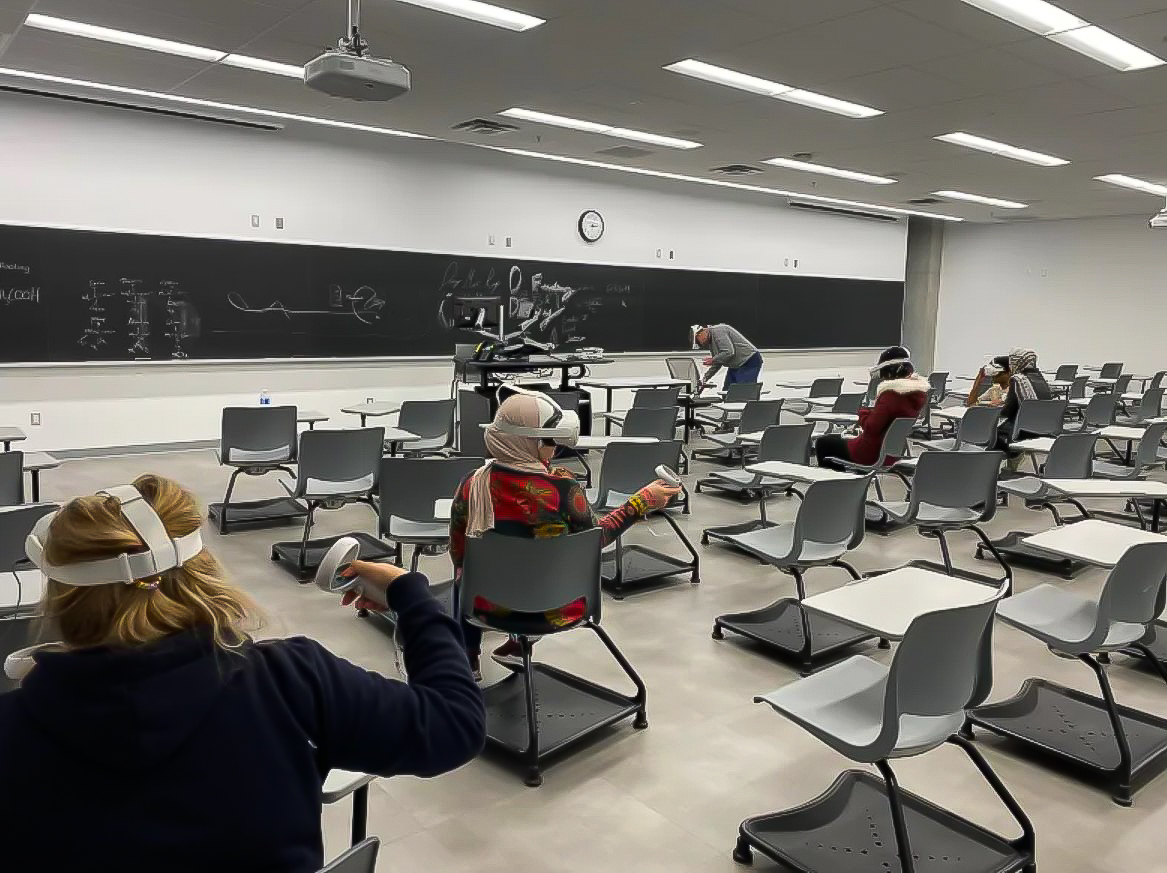Virtual Reality: A game changer in language acquisition
UTM hosts a VR program to teach English as a second language to immigrants.
For many Canadian immigrants, language is a major barrier in one’s ability to culturally integrate into society. In Canada, a degree of English fluency is necessary for work, social interaction, and financial management. Immigrants typically learn the language of their host country through “learning by doing” or engaging in typical social activities such as ordering a meal, phone conversations, and shopping.
At U of T, a three-year project spearheaded by Rayan Batlouni, a project manager at the Syrian Canadian Foundation, aims to utilize virtual reality (VR) technology to aid immigrants in learning English as a second language. With a $515,000 budget from the Ministry of Immigration, Refugees and Citizenship Canada, the project was implemented by the Syrian Canadian Foundation alongside the Department of Language Studies at the University of Toronto Mississauga (UTM). The program uses simulated environments that mimic realistic scenarios to help immigrants gain familiarity with, and confidence in, speaking English.
Over the fall term, the program ran for eight weeks, every Saturday on a weekly basis at the UTM campus. Students were divided into two classes, one using standard language learning (as the control group) and the other using VR. There were 24 students per class and 48 total. Over the course of three hours, teachers gave English lessons before students who used VR headsets to roleplay using the phrases they recently learned.
In December of 2022, CBC’s radio show, The Current, covered the program hosted at the UTM. Speaking in the show, Batlouni stated that “it was very interesting to see students that are shy in regular classes talk much more whenever they are utilizing the VR headset.” She noted that VR increases class participation for some students who are more reserved. Regardless, Batlouni contended that it is still a bit early to comment on the efficacy of the program in teaching language.
VR is beneficial to language learning as the immersive virtual environment creates a realistic experience where people can learn to interact and make decisions within society. Several businesses have taken interest in the financial investment and creation of language-learning VR games. For instance, Mondly—an education technology company—recently released a VR game wherein players can practice their language skills through conversing with passengers on a train, ordering meals at restaurants, and making hotel arrangements.
As baby boomers continue to leave the workforce, Canada’s economy is becoming more reliant upon its immigrant base. In November 2022, the federal government announced its plan to welcome more immigrants from 2023 to 2025, with a goal of 500,000 people for the final year. With the involvement of virtual reality games, more immigrants can learn English and enrich the Canadian economy.
However, there are still improvements that must be made to VR language learning. For instance, Mondly noted a range of issues, from technical problems to general conflicts regarding the learning curve of the technology involved. There are also issues with audio learning as speech recognition comes into play, and virtual reality headsets need further development. Overtime, as those issues become resolved, VR language education games can move past the niche market, becoming more accessible.


Thank you for the article Shreya! I enjoyed reading it.
Many thanks!